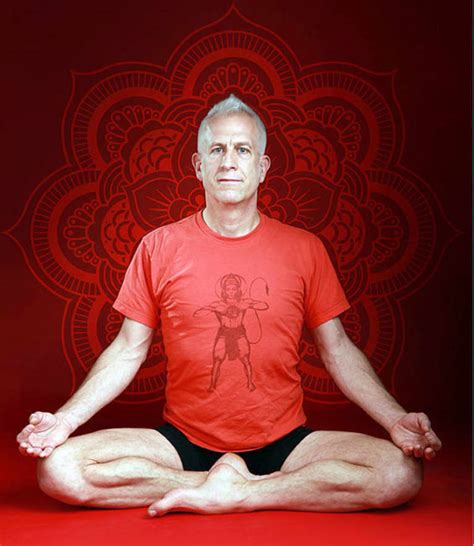A Quote by Kim Ki-duk
I intended to portray the joy, anger, sorrow and pleasure of our lives through four seasons and through the life of a monk who lives in a temple on Jusan Pond surrounded only by nature.
Related Quotes
People can be happy while they are going through great pain and adversity. There's no pleasure evident in their external lives yet they are content on the inside. And conversely, tons of people are surrounded by pleasure (fast cars, nice homes, great clothes) but there is no joy within. So choose to be happy.
When the mind is turbulent, uncontrolled and restless, it is like a pond of water that is filled with mud. Therefore when we look within ourselves, all we perceive is the mud of our material conceptions of life. But when the mind is still through discipline, and through yoga, it is like a pond that has no waves and no turbulence. Then we can perceive through that crystal clear water the eternal nature of our soul.
The difference between shallow happiness and a deep, sustaining joy is sorrow. Happiness lives where sorrow is not. When sorrow arrives, happiness dies. It can't stand pain. Joy, on the other hand, rises from sorrow and therefore can withstand all grief. Joy, by the grace of God, is the transfiguration of suffering into endurance, and of endurance into character, and of character into hope--and the hope that has become our joy does not (as happiness must for those who depend up on it) disappoint us.
The Revelation of Sonmi 451 To be is to be perceived, and so to know thyself is only possible through the eyes of the other. The nature of our immortal lives is in the consequences of our words and deeds, that go on and are pushing themselves throughout all time. - Our lives are not our own. From womb to tomb, we are bound to others, past and present, and by each crime and every kindness, we birth our future.
Peace is not just the absence of war, it is the active presence of a capacity for love and compassion, and reciprocity. It is an awareness that our lives are not to be lived simply for ourselves through expressing our individuality, but we confirm the purpose of our lives through the work of expressing our shared sense of community in a purposeful and practical way; to sustain our own lives we sustain the lives of others - in family, in a community of neighborhoods called a city, and in a community of nations called the world.
And yet we constantly reclaim some part of that primal spontaneity through the youngest among us, not only through their sorrow and anger but simply through everyday discoveries, life unwrapped. To see a child touch the piano keys for the first time, to watch a small body slice through the surface of the water in a clean dive, is to experience the shock, not of the new, but of the familiar revisited as though it were strange and wonderful.
When we give thanks in all things, we see hardships and adversities in the context of the purpose of life... We are meant to learn and grow through opposition, through meeting our challenges, and through teaching others to do the same... the Lord will not only consecrate our afflictions for our gain, but He will use them to bless the lives of countless others.
Joy is not the same as pleasure or happiness. A wicked and evil man may have pleasure, while any ordinary mortal is capable of being happy. Pleasure generally comes from things, and always through the senses; happiness comes from humans through fellowship. Joy comes from loving God and neighbor. Pleasure is quick and violent, like a flash of lightning. Joy is steady and abiding, like a fixed star. Pleasure depends on external circumstances, such as money, food, travel, etc. Joy is independent of them, for it comes from a good conscience and love of God.
No storm lasts forever no matter what it is. Nature builds calmness within its storms. That's true in our own lives as well. When you reach the zenith of where you are going in your life, or in a relationship; the only place you can go is down or up. That's the nature of this universe; a cyclical thing. The seasons, the moon; everything has a cycle to it.
Sorrow is so woven through us, so much a part of our souls, or at least any understanding of our souls that we are able to attain, that every experience is dyed with its color. This is why, even in moments of joy, part of that joy is the seams of ore that are our sorrow. They burn darkly and beautifully in the midst of joy, and they make joy the complete experience that it is. But they still burn.





































